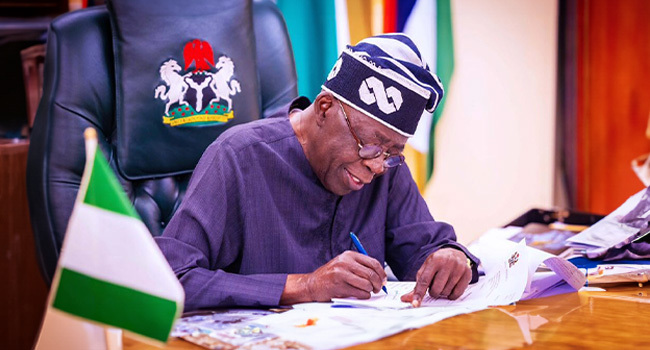
President Bola Tinubu has ordered the Federal Ministry of Health and Social Welfare to take urgent steps to end the ongoing strike by members of the Nigerian Association of Resident Doctors (NARD) and ensure their immediate return to duty.
The directive, which underscores the administration’s concern over the disruption of medical services nationwide, was disclosed yesterday in Abuja by the Minister of State for Health and Social Welfare, Dr. Iziaq Salako, during a press briefing.
Salako, who apologised to Nigerians affected by the industrial action, said the President had mandated the ministry to do “everything possible and legitimate” to bring the striking doctors back to work.
“On behalf of myself, the Coordinating Minister of Health and Social Welfare, Prof. Muhammad Pate, and all management staff of the ministry, we regret the inconvenience caused to Nigerians who could not access healthcare in the last 48 hours due to the strike,” he said.
“Mr. President has expressly directed that we must ensure the resident doctors resume work without delay.”
The minister explained that the Federal Government had been in active engagement with NARD leaders to resolve their grievances, which included 19 separate demands.
He recalled that the dispute stemmed from a circular issued by the National Salaries, Incomes and Wages Commission (NSIWC) in July, which divided health workers. Some professional groups accepted its provisions while others protested, prompting the ministry to seek a review.
According to him, the circular was later withdrawn to pave the way for a Collective Bargaining Agreement (CBA) process that began in August to harmonise discussions among all health unions, including the Nigerian Medical Association (NMA), National Association of Nigerian Nurses and Midwives (NANNM), and the Joint Health Sector Unions (JOHESU).
Since August, he said, the CBA committee had met 12 times, but two major issues, remuneration relativity and the appointment of non-doctor health workers as consultants, sparked disagreements, leading to a temporary suspension of talks.
The ministry, he added, had engaged a professor of industrial relations as an external negotiator to resolve the contentious matters.
“That negotiator has met the three unions and submitted an interim report. We’ve reconvened to deliberate further, and government is now preparing recommendations for the CBA,” Salako stated.
He noted that despite the standing CBA rule against industrial action during negotiations, several meetings had been held with NARD to address their concerns, including financial arrears, manpower shortages, and working conditions.
On manpower, Salako revealed that over 14,000 health workers had been recruited in 2024, while the process for another 23,000 hires across 78 federal health institutions had been approved for 2025.
He added that the President had approved the upward review of retirement age for clinical health workers to 65 years and released N21.3 billion for payment of outstanding arrears, with 60 percent already disbursed.
Salako maintained that the government was committed to sustainable reforms in the health sector and urged stakeholders to cooperate for lasting industrial harmony.
“There is no slow progress,” he said. “We are taking our time to ensure that every step we take is sustainable. The health sector works as a team, no cadre can function effectively in isolation.”